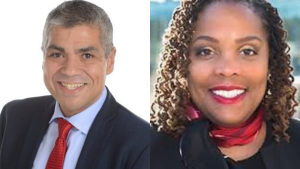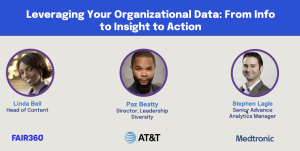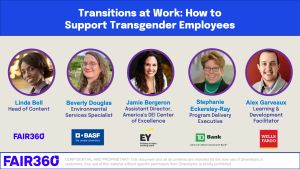Moderator: Anita C. Ricketts, Head of Strategic Partnerships, Fair360, formerly DiversityInc
Panelists:
- Annaliece Gargiulo, Project Manager, Legal Operations, Abbott (No. 4 on the 2021 Fair360, formerly DiversityInc Top 50 Companies for Diversity list)
- Patricia Rossman, Chief Diversity and Inclusion Officer, BASF (No. 12 in 2021)
- Everette Nichols, Director, Diversity, Equity and Inclusion, Jefferson
Microaggressions happen every day and happen in the form of verbal insults, nonverbal snubs or jokes that are in poor taste.
















